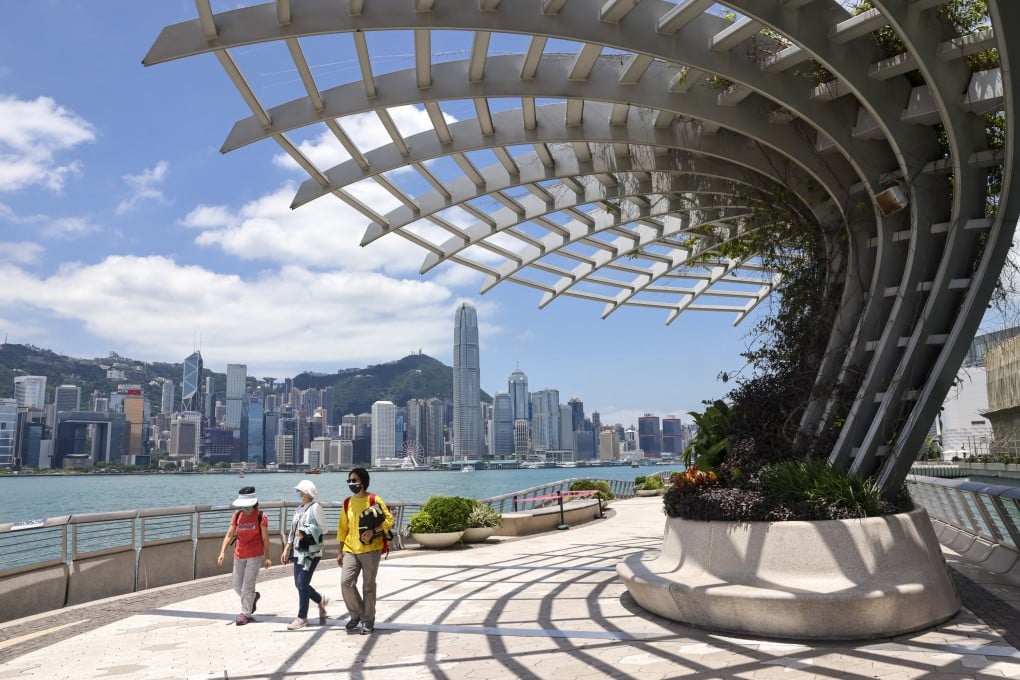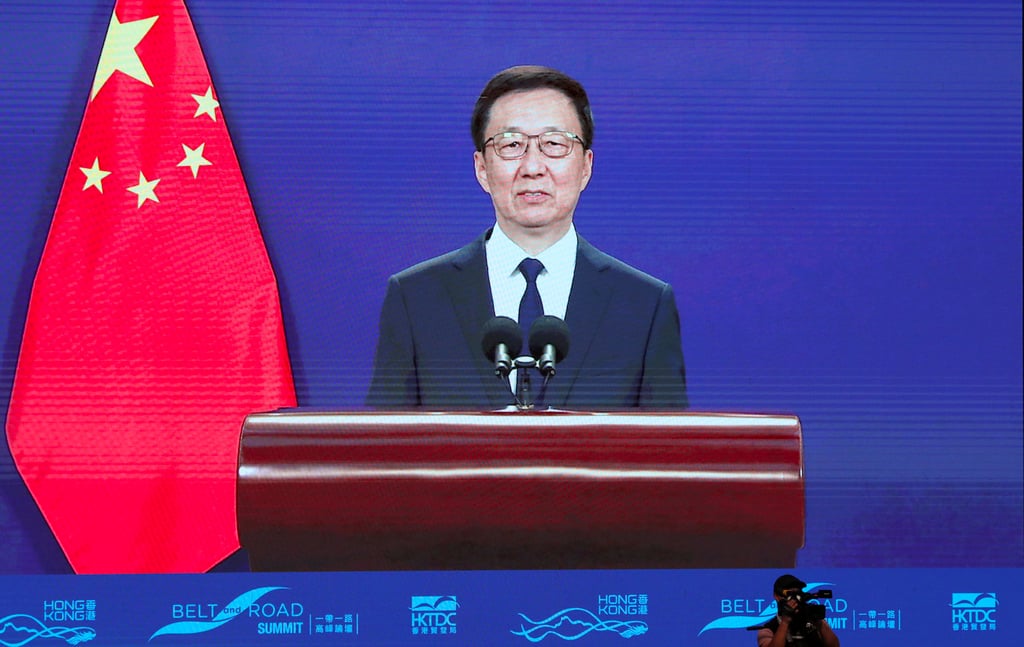Chinese Vice-Premier Han Zheng takes to global stage to tout Hong Kong’s unique advantages, show support for city’s free market
- Han tells high-powered Belt and Road Summit in video speech that city must maintain common law system, develop value-added services
- City leader John Lee tells event that city financial systems remain ‘resilient to market volatility’

Chinese Vice-Premier Han Zheng has taken to the international stage to promote Hong Kong’s unique advantages, underscoring the city’s free and open business environment along with its common law system.
Addressing an international audience via videoconferencing at a high-powered forum on Wednesday, the top Beijing official overseeing Hong Kong affairs urged the city to take the initiative by promoting more practical cooperation and cultural integration with the outside world, as well as strengthening its professional services to better contribute to China’s Belt and Road Initiative.
“We support Hong Kong in maintaining a free, open and regulated business environment, developing smooth and convenient international links as well as closer exchanges and cooperation with more countries, and expanding economic and trade cooperation networks,” Han said. “I hope Hong Kong will strengthen its professional services and build a comprehensive service platform for the Belt and Road Initiative.

He was speaking to business leaders and foreign officials at the Belt and Road Summit in Hong Kong, to discuss Beijing’s plan to connect more than 70 countries across Asia, Europe and Africa via a “New Silk Road” of railways, highways and ports.
The vice-premier also said the city’s competitiveness in the international division of labour would be improved by maintaining its common law system, developing value-added shipping services and providing consultancy for projects under Beijing’s trade initiative.
Han’s public promotion of Hong Kong’s advantages and its role in national development plans came a day after the Politburo, the Communist Party’s decision-making body, set October 16 as the commencement date of its twice-a-decade congress.
He is the most senior state leader to elaborate on President Xi Jinping’s remarks earlier this year setting out a blueprint for Hong Kong’s development and the central government’s expectations.